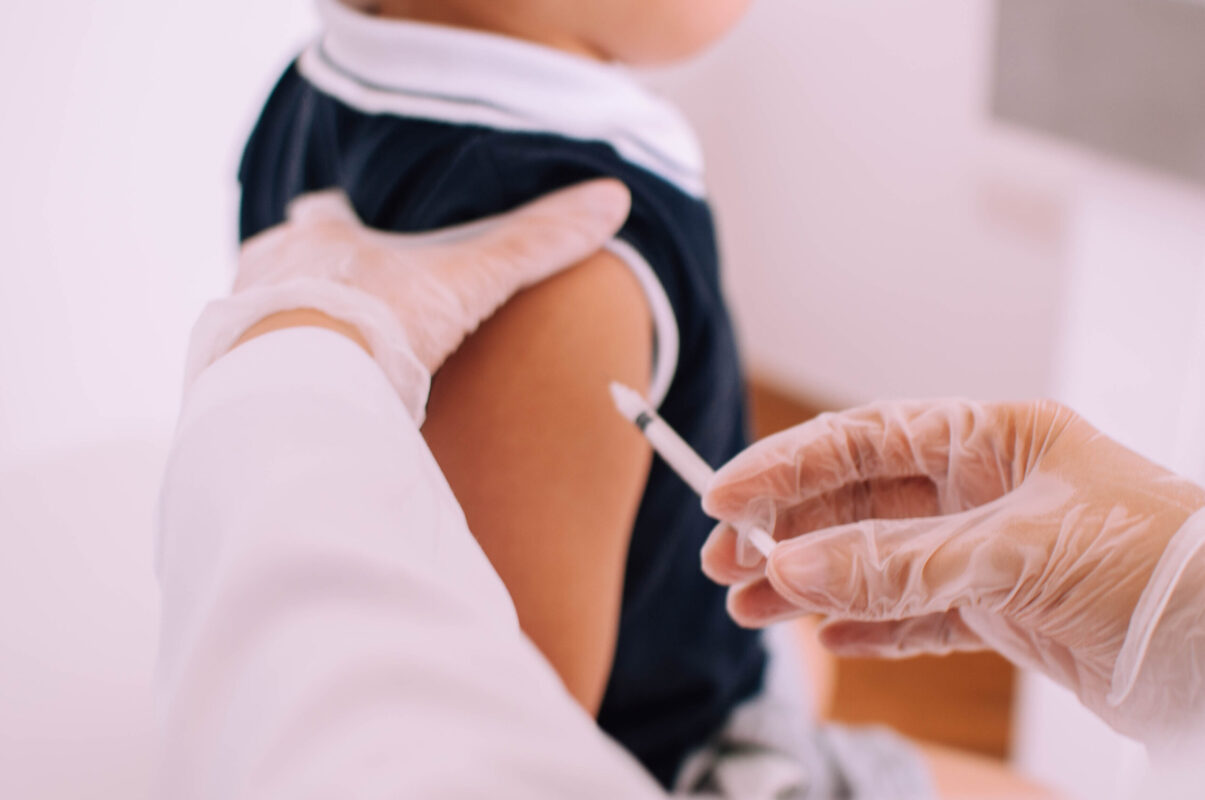How do you prove something is important when most people will never see its effects?
It’s a question healthcare professionals have struggled with for years when it comes to childhood vaccines, says Dr. Jeanne James, chief medical officer for BlueCare Tennessee.
“We’ve done such a good job eliminating these diseases that many people are several generations away from any experience with them,” says Dr. James. “Most of us don’t know anyone who had polio or a serious case of the measles. That lack of direct experience makes it harder for people to understand why vaccines are so important.”
Surprisingly, COVID-19 may actually help bridge that gap of understanding their importance, especially for people who aren’t at high risk for serious illness.
“There are always going to be some people who can’t get vaccinated because they’re too young, too sick or immunocompromised, or they’re going through chemotherapy,” says Dr. James. “So while I might not get very sick if I get the measles, I could give it to a young child or a person who’s compromised, and they could get very sick or even die from it. It’s the same principle as the coronavirus: Even if getting sick doesn’t hurt you, you can spread it to others.”
5 things parents need to know about childhood vaccines
1. Earlier is better.
In order to get the maximum benefits, children need to get vaccines as early as possible.
“Not only are vaccines more effective that way, but diseases like diphtheria or whooping cough can be far more dangerous in babies and young children, so they need to be protected as soon as possible,” says Dr. James.
Diphtheria, for example, can cause difficulty breathing, heart failure or even paralysis, and whooping cough (pertussis) can cause respiratory failure in infants. Those severe reactions are why most vaccines are scheduled early in life, and some, such as hepatitis B, are given to newborns in the nursery.
Most immunizations, however, occur at monthly intervals — 2, 4 or 6 months up to 18 months — and then there’s a break until age 4 or 5. Your pediatrician will advise you on what’s right for your child, but you can see a general schedule:
- On the CDC website, or
- In our article on what vaccines a child needs when.
2. The benefits of vaccines are real — even if you can’t see them.
“As I mentioned, childhood vaccinations are one of the biggest public-health successes of our time, but we have to keep educating parents in order for it to stay that way,” says Dr. James.
“For example, meningitis — an inflammation of the spinal cord that can be life-threatening — used to be a common cause of hospitalization, but it’s not anymore thanks to vaccines. Measles is another good example. People tend to think of it as an old childhood illness, but if you do get it, it can cause encephalitis (inflammation of the brain) or hearing loss. If these diseases come back, they can have really bad consequences.”
For the complete WellTuned guide to measles, click here.
There are also newer vaccines some parents may not know about if they weren’t around when they grew up. One is the vaccine for HPV, an infection that can cause cervical cancer.
“Initially, there was a struggle because parents thought, ‘HPV is an STD, and my child is not sexually active, so they don’t need it.’ But that’s not the case. Most people will become sexually active at some point, and women won’t have symptoms of cervical cancer until it’s very far along. That’s extremely dangerous, which is why everyone should get vaccinated.”
For the complete WellTuned guide to HPV, click here.
3. Everyone needs a flu shot.
Another vaccination physicians agree should be universal is influenza.
“For the last few years, the recommendation has been for everyone to get the flu vaccine every year,” says Dr. James. “That will be especially important this winter so that if you come down with respiratory symptoms, your doctor will be able to make a more informed diagnoses of the flu, a cold, coronavirus or something else.
4. Children should get the full series of shots.
“There are several immunizations that require a series of shots rather than just one,” says Dr. James. “For example, the vaccine for diphtheria, pertussis and tetanus — a nerve disease that can cause respiratory arrest — has at least four doses for most people. You need the full series and the ‘boosters’ in middle school or later in life to stay protected.”
5. You don’t have to be afraid to go to the doctor.
Right now, parents are worried about going to the doctor, especially if a child is well. That’s understandable, says Dr. James, but it’s not the best course of action long-term.
“Doctors’ offices have done all kinds of things to make sure children are safe,” she says. “Maybe they’re seeing well children in the morning and sick children in afternoon, or they’re asking patients to wait in the car until it’s time for your appointment. Whatever the case, now is not the time to avoid the doctor, so talk with your pediatrician and make a plan.”
Get more information about specific health terms, topics and conditions to better manage your health on bcbst.com. BlueCross BlueShield of Tennessee members can access wellness-related discounts on fitness products, gym memberships, healthy eating and more through Blue365®. BCBST members can also find tools and resources to help improve health and well-being by logging into BlueAccess and going to the Managing Your Health tab.


